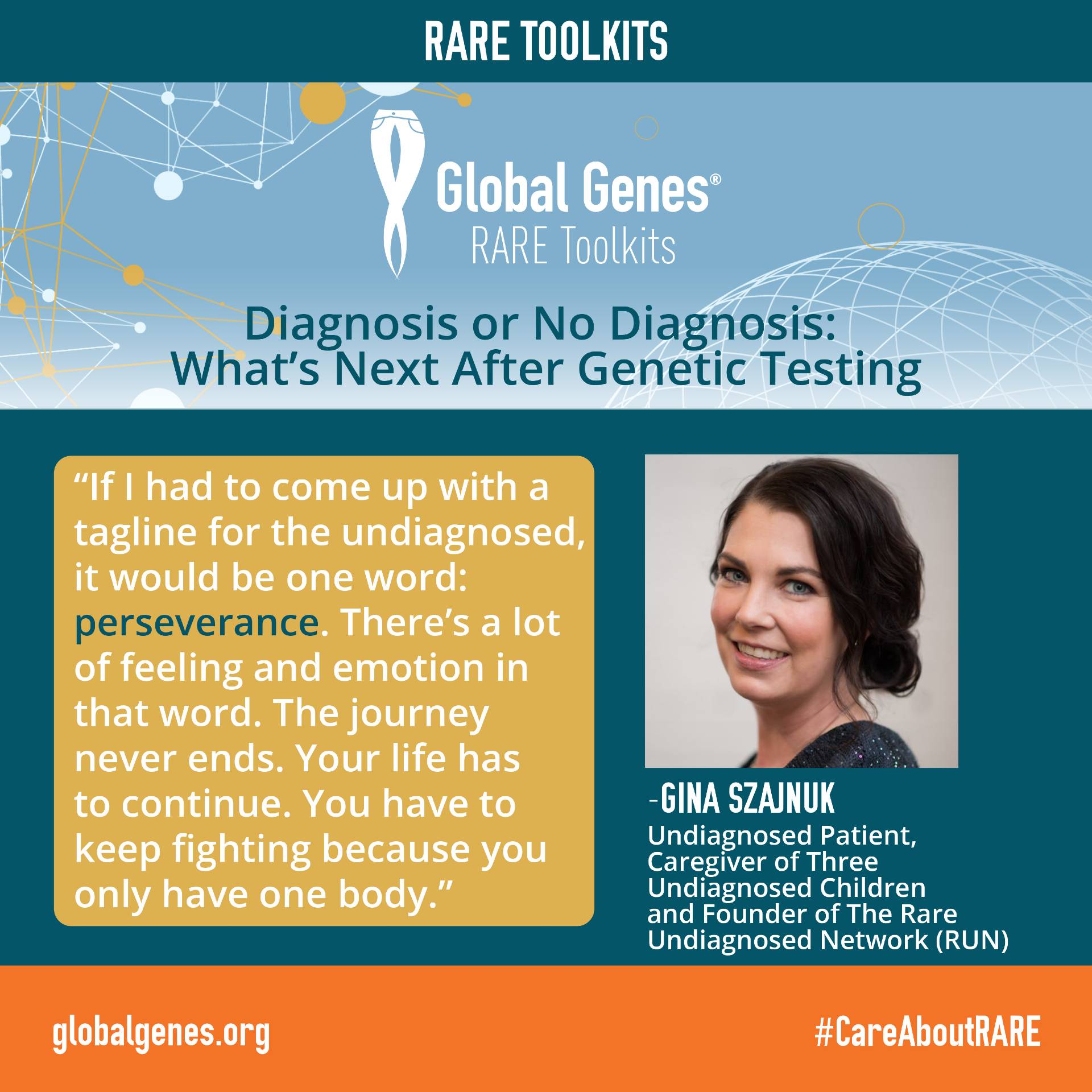A Guide To Next Steps After Not Receiving A Diagnosis
If you are seeking a diagnosis, genetic tests, along with a physical exam, medical history, and other lab tests can sometimes provide a clear answer. But it’s also possible that your test results won’t produce a diagnosis – at least not right away. After you meet with a genetic counselor and undergo genetic testing, you will receive positive, negative, or uninformative results for genetic variants, based on their association with a genetic disorder:
- Pathogenic Variants: There is ample scientific research that shows this variant is associated with disease
- Likely Pathogenic Variants: This variant is probably associated with disease, but there’s not enough research to know for certain
- Variants of Uncertain Significance: There is not enough evidence to determine whether or not the variant is harmful
- Likely Benign Variants: This variant is probably not associated with disease, but there’s not enough research to know for certain
- Benign Variants: There is ample scientific research that shows this variant is not associated with disease
A positive result means the lab found a change in a particular gene, chromosome, or protein of interest. A negative genetic test result indicates the lab did not find a change in a gene, chromosome, or protein that they considered. This could mean you aren’t affected by a particular disease and do not have a risk of developing it. It’s also possible that the particular test used did not detect the change and further testing may be needed to confirm the negative result. A Genetic Test Uninformative Result means the test did not provide any useful information that would either confirm or rule out a specific diagnosis or indicate that the person has an increased risk of developing a disorder.
When you Don’t Get a Rare Disease Diagnosis after Genetic Testing

If you receive a negative or uninformative result from your genetic test, don’t lose hope. A “non-diagnosis” can help rule things out, redirect your path, and determine next steps. It can be frustrating to wait for scientific knowledge to catch up before you are able to obtain a genetic diagnosis, but keep in mind that you have taken a step forward. Here are a few steps you can take if you do not receive a rare disease diagnosis after genetic testing.
- If your genetics team doesn’t specify when you should come back, be sure to ask them if you should follow up in six months to a year.
- Alert your genetics team if you have new symptoms, a new health issue, someone else in your family was diagnosed with a genetic condition, or you have new contact information
- Look into additional tests or reanalyze your data from whole genome sequencing (WGS) or whole exome sequencing (WES)
- Find people who understand. Belonging to a community — even when undiagnosed — can provide practical and emotional support as you continue your search. The Global Genes RAREConcierge provides personalized support, resources, and connection opportunities for those diagnosed and undiagnosed.
- Dive into some of the many additional resources for undiagnosed patients and families, including:
- Global Genes Becoming an Empowered Patient: A Toolkit for the Undiagnosed
- NIH/NCATS Genetic and Rare Diseases Information Center (GARD)
- Syndromes Without a Name UK (SWAN)
- Rare Undiagnosed Network (RUN)
- Undiagnosed Diseases Network (UDN)
- Undiagnosed Diseases Network International (UDNI)
- Undiagnosed Rare Disease Patient Registry
Other resources:
- Types of Genetic Tests – review the chart outlining various types of genetic testing options, including recommended uses, limitations, timing, and cost
- What’s next after genetic testing – download the toolkit to help you determine what’s next after genetic testing, whether you receive a diagnosis or not
- Cell and Gene Therapy for rare disease clinical trials – consult the FAQ to help you make decisions about whether a clinical trial is the right choice for your family
Want more information? Check out these additional resources to help prepare your family to navigate the gene-based diagnostic journey. Global Genes has created a series of toolkits, videos, and checklists to share insights from rare advocates and experts who have personal experience – professional and personal. This information was taken from our genetic testing toolkit, Diagnosis or No Diagnosis – What To Do Next?. Find more information and download all four free Genetic-Based Diagnosis toolkits which also include Genetic Testing: Getting to a Diagnosis, How a Genetic Counselor Can Help You, and Making Informed and Shared Decisions About Genetic Testing & Clinical Trials.

Stay Connected
Sign up for updates straight to your inbox.
